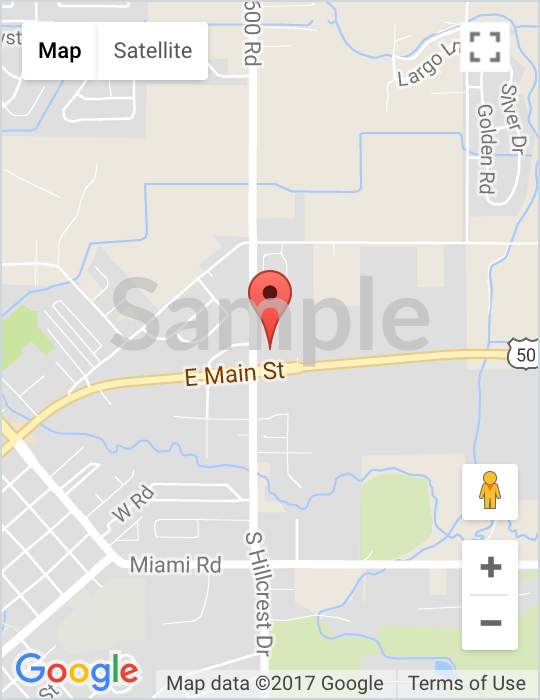Terms of Service
This page states the "Terms and Conditions" under which you may use AUTOjobs.com. Please read this page carefully. If you do not accept the Terms and Conditions stated here, do not use this web site and service. By using this web site, you are indicating your acceptance to be bound by the terms of these Terms and Conditions. AUTOjobs.com, Inc. may revise these Terms and Conditions at any time by updating this posting. You should visit this page periodically to review the Terms and Conditions, because they are binding on you. The terms "You" and "User" as used herein refer to all individuals and/or entities accessing this web site for any reason.
Use of Web Site Content.
AUTOjobs.com, Inc. authorizes You to view and access a single copy of the content available on or from AUTOjobs.com (the "Web Site") solely for your personal, noncommercial use.
The contents of this Web Site, and of all other websites under the AUTOjobs.com’s control, whether partial or otherwise (the Website and such other websites are sometimes collectively referred to as " AUTOjobs.com Sites") such as text, graphics, images, logos, button icons, software and other Web Site content (collectively, "Web Site Content"), are protected under both United States and foreign copyright, trademark and other laws. All Web Site Content is the property of AUTOjobs.com, Inc. or its content suppliers or clients. The compilation (meaning the collection, arrangement and assembly) of all content on this Web Site is the exclusive property of AUTOjobs.com, Inc. and protected by U.S. and international copyright laws. Unauthorized use of the Web Site Content may violate copyright, trademark, and other laws. You must retain all copyright, trademark, service-mark and other proprietary notices contained in the original Web Site Content on any copy You make of the Web Site Content. You may not sell or modify the Web Site Content or reproduce, display, publicly perform, distribute, or otherwise use the Web Site Content in any way for any public or commercial purpose. The use of the Web Site Content on any other web site or in a networked computer environment for any purpose is prohibited.
You shall not copy or adapt the HTML code that AUTOjobs.com, Inc. creates to generate any Web Site Content or the pages making up any AUTOjobs.com Site. It is also protected by AUTOjobs.com, Inc. copyright.
Acceptable Site Use.
General Rules: Users may not use any AUTOjobs.com Site in order to transmit, distribute, store or destroy material, including without limitation Web Site Content, (a) in violation of any applicable law or regulation, (b) in a manner that will infringe the copyright, trademark, trade secret or other intellectual property rights of others or violate the privacy, publicity or other personal rights of others, or (c) that is defamatory, obscene, threatening, abusive or hateful.
AUTOjobs.com Site Security Rules.
Users are prohibited from violating or attempting to violate the security of any AUTOjobs.com Site, including, without limitation, (a) accessing data not intended for such user or logging into a server or account which the user is not authorized to access, (b) attempting to probe, scan or test the vulnerability of a system or network or to breach security or authentication measures without proper authorization, (c) attempting to interfere with service to any user, host or network, including, without limitation, via means of submitting a virus to any AUTOjobs.com Site, overloading, "flooding", "spamming", "mailbombing" or "crashing", (d) sending unsolicited e-mail, including promotions and/or advertising of products or services, or (e) forging any TCP/IP packet header or any part of the header information in any e-mail or newsgroup posting. Violations of system or network security may result in civil or criminal liability. AUTOjobs.com, Inc. will investigate occurrences which may involve such violations and may involve, and cooperate with, law enforcement authorities in prosecuting users who are involved in such violations.
Specific Prohibited Uses.
AUTOjobs.com Sites may be used only for lawful purposes by individuals seeking employment and career information and employers seeking employees. AUTOjobs.com, Inc. specifically prohibits any use of the Web Site, and all users agree not to use the Web Site, for any of the following:
1. Posting any incomplete, false or inaccurate biographical information or information which is not your own accurate resume (living individual seeking employment on a full-time or part-time basis on his or her own behalf).
2. Posting any franchise, pyramid scheme, "club membership", distributorship or sales representative agency arrangement or other business opportunity which requires an up front or periodic payment, pays commissions only (except for postings that make clear that the available job pays commission only and clearly describes the product or service that the job seeker would be selling, in which case such postings are permissible), requires recruitment of other members, sub-distributors or sub-agents.
3. Deleting or revising any material posted by any other person or entity.
4. Using any device, software or routine to interfere or attempt to interfere with the proper working of any AUTOjobs.com Site or any activity being conducted on this site.
5. Taking any action that imposes an unreasonable or disproportionately large load on any AUTOjobs.com Site's infrastructure.
6. If You have a password allowing access to a non-public area of this Web Site, disclosing to or sharing your password with any third parties or using your password for any unauthorized purpose.
7. Notwithstanding anything to the contrary contained herein, using or attempting to use any engine, software, tool, agent or other device or mechanism (including without limitation browsers, spiders, robots, avatars or intelligent agents) to navigate or search any AUTOjobs.com Site other than the search engine and search agents available from AUTOjobs.com, Inc. on such AUTOjobs.com Site and other than generally available third party web browsers (e.g., Chrome, Safari, Internet Explorer, Edge, Firefox, Samsung Internet, Android Webview).
8. Attempting to decipher, decompile, disassemble or reverse engineer any of the software comprising or in any way making up a part of any AUTOjobs.com Site.
9. Aggregating, copying or duplicating in any manner any of the Web Site Content or information available from any AUTOjobs.com Site.
10. Framing of or linking to any of the Web Site Content or information available from any AUTOjobs.com Site.
User Information.
When You register for the Web Site, You will be asked to provide AUTOjobs.com, Inc. with certain information including, without limitation, a valid email address (your "Information"). In addition to the terms and conditions that may be set forth in any privacy policy on this Web Site, You understand and agree that AUTOjobs.com, Inc. may disclose to third parties, on an anonymous basis, certain aggregate information contained in your registration application. AUTOjobs.com, Inc. will not disclose to any third party your name, address, e-mail address or telephone number without your prior consent, except to the extent necessary or appropriate to comply with applicable laws or in legal proceedings where such information is relevant. AUTOjobs.com, Inc. reserves the right to offer third party services and products to You based on the preferences that You identify in your registration and at any time thereafter; such offers may be made by AUTOjobs.com, Inc. or by third parties. Please see AUTOjobs.com’s Privacy Policy for further details regarding your Information.
User Submissions.
As a user, You are responsible for your own communications and are responsible for the consequences of their posting. You must not, and by using any AUTOjobs.com Site You agree not to, do the following things: post material that is copyrighted, unless You are the copyright owner or have the permission of the copyright owner to post it; post material that reveals trade secrets, unless You own them or have the permission of the owner; post material that infringes on any other intellectual property rights of others or on the privacy or publicity rights of others; post material that is obscene, defamatory, threatening, harassing, abusive, hateful, or embarrassing to another user or any other person or entity; post a sexually-explicit image or statement; post advertisements or solicitations of business, post chain letters or pyramid schemes; impersonate another person; or post material that contains viruses, Trojan horses, worms, time bombs, cancelbots or other computer programming routines or engines that are intended to damage, detrimentally interfere with, surreptitiously intercept or expropriate any system, data or information.
AUTOjobs.com, Inc. does not represent or guarantee the truthfulness, accuracy, or reliability of communications posted by users or endorse any opinions expressed by users. You acknowledge that any reliance on material posted by other users will be at your own risk.
AUTOjobs.com, Inc. acts as a passive conduit for the online distribution and publication of user-submitted information and has no obligation to screen communications or information in advance and is not responsible for screening or monitoring material posted by users. If notified by a user of communications which allegedly do not conform to these Terms and Conditions, AUTOjobs.com, Inc. may investigate the allegation and determine in good faith and its sole discretion whether to remove or request the removal of the communication. AUTOjobs.com, Inc. has no liability or responsibility to users for performance or nonperformance of such activities. AUTOjobs.com, Inc. reserves the right to expel users and prevent their further access to the Web Site for violating the Terms and Conditions or the law and the right to remove communications which are abusive, illegal, or disruptive. AUTOjobs.com, Inc. may take any action with respect to user-submitted information that it deems necessary or appropriate in its sole discretion if it believes it may create liability for AUTOjobs.com, Inc. or may cause AUTOjobs.com, Inc. to lose (in whole or in part) the services of its ISPs or other suppliers.
By submitting content to any public or non-public area of any AUTOjobs.com Site, including resume boards, and contests, You grant AUTOjobs.com, Inc. and its affiliates the loyalty-free, perpetual, irrevocable, sublicenseable (through multiple tiers), non-exclusive right (including any moral rights) and license to use, reproduce, modify, adapt, publish, translate, create derivative works from, distribute, communicate to the public, perform and display the content (in whole or in part) worldwide and/or to incorporate it in other works in any form, media, or technology now known or later developed, for the full term of any rights that may exist in such content. You also warrant that the holder of any rights, including moral rights in such content, has completely and effectively waived all such rights and validly and irrevocably granted to You the right to grant the license stated above. You also permit any subscriber to access, display, view, store and reproduce such content for personal use. Subject to the foregoing, the owner of such content placed on the Web Site retains any and all rights that may exist in such content.
Registration and Password.
You are responsible for maintaining the confidentiality of your information and password. You shall be responsible for all uses of your registration, whether or not authorized by You. You agree to immediately notify AUTOjobs.com, Inc. of any unauthorized use of your registration or password.
Identification Of Agent To Receive Notification And Elements Of Notification Of Claimed Copyright Infringement
If You believe that your copyrighted work has been uploaded, posted or copied to this Web Site and is accessible on this Web Site in a way that constitutes copyright infringement, please notify us by providing our designated copyright agent with the following information:
1. The physical or electronic signature of either the copyright owner or of a person authorized to act on the owner's behalf;
2. A description of the copyrighted work You claim has been infringed, and a description of the activity that You claim to be infringing;
3. Identification of the URL or other specific location on this web site where the material or activity You claim to be infringing is located or is occurring; You must include enough information to allow us to locate the material or the activity;
4. Your name, address, telephone number and, if You have one, your e-mail address;
5. A statement by You that You have a good faith belief that use on the web site of the copyrighted work in the manner You are complaining of is not authorized by the copyright owner, any agent of the copyright owner, or the law; and
6. A statement by You, made under penalty of perjury, that the information You have provided in your notice is accurate and that You are either the copyright owner or are authorized to act on behalf of the copyright owner.
We have designated Steve Brown as our agent to receive notices of claims of copyright infringement on our web site. You can contact Steve as follows:
By mail: Steve Brown
Job Seeker Operations Specialist
AUTOjobs.com, Inc.
2065 E. Main Street
Bldg D
Montrose, CO 81401
By telephone: 1-888-915-1112
By e-mail: [email protected]
Policy Regarding Termination Of Users And Account Holders Who Repeatedly Infringe The Copyright Or Other Intellectual Property Rights Of Others
AUTOjobs.com, Inc., AUTOjobs.com, and all of our affiliated companies respect the intellectual property of others, and we ask our users, account holders and content partners to do the same. The unauthorized reproduction, copying, distribution, modification, public display or public performance of copyrighted works constitutes infringement of the copyright owners rights. As a condition to your use of this Web Site, You agree not to use the Web Site or any other AUTOjobs.com Site to infringe the intellectual property rights of others in any way. We will terminate the accounts of any account holders, and block access to our Web Site and/or the other AUTOjobs.com Sites of any users, who are repeat infringers of the copyrights, or other intellectual property rights, of others. We reserve the right to take these actions at any time, in our sole discretion, with or without notice, and without any liability to the account holder who is terminated or to the user whose access is blocked.
AUTOjobs.com, Inc. Liability.
AUTOjobs.com is only a venue. This Web Site acts as a venue for employers to post job opportunities and candidates to post resumes and does not screen or censor the listings offered. AUTOjobs.com, Inc. is not involved in the actual transaction between employers and candidates. As a result, AUTOjobs.com, Inc. has no control over the quality, safety or legality of the jobs or resumes posted, the truth or accuracy of the listings, the ability of employers to offer job opportunities to candidates or the ability of candidates to fill job openings. In addition, note that there are risks, including but not limited to the risk of physical harm, of dealing with strangers, foreign nationals, underage persons or people acting under false pretenses. You assume all risks associated with dealing with other users with whom You come in contact through the Web Site and/or the other AUTOjobs.com Sites.
Because user authentication on the Internet is difficult, AUTOjobs.com, Inc. cannot and does not confirm that each user is who they claim to be. Because we do not and cannot be involved in user-to-user dealings or control the behavior of participants on any AUTOjobs.com Site, in the event that You have a dispute with one or more users, You release AUTOjobs.com, Inc. (and our agents and employees) from claims, demands and damages (actual and consequential, direct and indirect) of every kind and nature, known and unknown, suspected and unsuspected, disclosed and undisclosed, arising out of or in any way connected with such disputes. If You are a California resident, You waive California Civil Code d1542, which says: "A general release does not extend to claims which the creditor does not know or suspect to exist in his favor at the time of executing the release, which if known by him must have materially affected his settlement with the debtor."
We are under no legal obligation to, and generally do not, control the information provided by other users which is made available through the Web Site and/or the other AUTOjobs.com Sites. By its very nature, other people's information may be offensive, harmful or inaccurate, and in some cases will be mislabeled or deceptively labeled. We expect that You will use caution and common sense when using this Web Site and/or the other AUTOjobs.com Sites.
The Web Site Content may contain inaccuracies or typographical errors. AUTOjobs.com, Inc. makes no representations about the accuracy, reliability, completeness, or timeliness of any AUTOjobs.com Site or the Web Site Content. The use of AUTOjobs.com Sites and the Web Site Content is at your own risk. Changes are periodically made to AUTOjobs.com Sites and may be made at any time.
You acknowledge and agree that You are solely responsible for the form, content and accuracy of any resume or material contained therein placed by You on the AUTOjobs.com Sites. Employers are solely responsible for their postings on AUTOjobs.com Sites. AUTOjobs.com, Inc. is not to be considered to be an employer with respect to your use of any AUTOjobs.com Site and AUTOjobs.com, Inc. shall not be responsible for any employment decisions, for whatever reason made, made by any entity posting jobs on any AUTOjobs.com Site.
AUTOjobs.com, Inc. DOES NOT WARRANT THAT ANY AUTOjobs.com SITE WILL OPERATE ERROR-FREE OR THAT ANY AUTOjobs.com SITE AND ITS SERVER ARE FREE OF COMPUTER VIRUSES OR OTHER HARMFUL MECHANISMS. IF YOUR USE OF ANY AUTOjobs.com SITE OR THE WEB SITE CONTENT RESULTS IN THE NEED FOR SERVICING OR REPLACING EQUIPMENT OR DATA, AUTOjobs.com, Inc. IS NOT RESPONSIBLE FOR THOSE COSTS. AUTOjobs.com SITES AND WEB SITE CONTENT ARE PROVIDED ON AN "AS IS" BASIS WITHOUT ANY WARRANTIES OF ANY KIND. AUTOjobs.com, Inc., TO THE FULLEST EXTENT PERMITTED BY LAW, DISCLAIMS ALL WARRANTIES, WHETHER EXPRESS OR IMPLIED, INCLUDING THE WARRANTY OF MERCHANTABILITY, FITNESS FOR PARTICULAR PURPOSE AND NON-INFRINGEMENT. AUTOjobs.com, Inc. MAKES NO WARRANTIES ABOUT THE ACCURACY, RELIABILITY, COMPLETENESS, OR TIMELINESS OF THE WEB SITE CONTENT, SERVICES, SOFTWARE, TEXT, GRAPHICS, AND LINKS.
Disclaimer of Consequential Damages.
IN NO EVENT SHALL AUTOjobs.com, Inc., ITS SUPPLIERS, OR ANY THIRD PARTIES MENTIONED ON ANY AUTOjobs.com SITE BE LIABLE FOR ANY DAMAGES WHATSOEVER (INCLUDING, WITHOUT LIMITATION, INCIDENTAL AND CONSEQUENTIAL DAMAGES, LOST PROFITS, OR DAMAGES RESULTING FROM LOST DATA OR BUSINESS INTERRUPTION) RESULTING FROM THE USE OR INABILITY TO USE ANY AUTOjobs.com SITE AND THE WEB SITE CONTENT, WHETHER BASED ON WARRANTY, CONTRACT, TORT, OR ANY OTHER LEGAL THEORY, AND WHETHER OR NOT AUTOjobs.com, Inc. IS ADVISED OF THE POSSIBILITY OF SUCH DAMAGES.
Links to Other Sites.
The Web Site and certain other AUTOjobs.com Sites contain links to third party web sites. These links are provided solely as a convenience to You and not as an endorsement by AUTOjobs.com, Inc. of the contents on such third-party Web sites. AUTOjobs.com, Inc. is not responsible for the content of linked third-party sites and does not make any representations regarding the content or accuracy of materials on such third party Web sites. If You decide to access linked third party Web sites, You do so at your own risk.
No Resale or Unauthorized Commercial Use.
You agree not to resell or assign your rights or obligations under these Terms of Use. You also agree not to make any unauthorized commercial use of any AUTOjobs.com Site.
LIMITATION OF LIABILITY
AUTOjobs.com, Inc.’s MAXIMUM LIABILITY ARISING OUT OF OR IN CONNECTION WITH ANY AUTOjobs.com SITE OR YOUR USE OF THE WEB SITE CONTENT, REGARDLESS OF THE CAUSE OF ACTION (WHETHER IN CONTRACT, TORT, BREACH OF WARRANTY OR OTHERWISE), WILL NOT EXCEED $100.
Termination.
AUTOjobs.com, Inc. reserves the right, at its sole discretion, to pursue all of its legal remedies, including but not limited to deletion of your postings from this Web Site and the other AUTOjobs.com Sites and immediate termination of your registration with or ability to access this Web Site and the other AUTOjobs.com Sites and/or any other service provided to You AUTOjobs.com, Inc., upon any breach by You of these Terms and Conditions or if AUTOjobs.com, Inc. is unable to verify or authenticate any information You submit to the Web Site or other AUTOjobs.com Site registration.
Indemnity.
You agree to defend, indemnify, and hold harmless AUTOjobs.com, Inc., its officers, directors, employees and agents, from and against any claims, actions or demands, including without limitation reasonable legal and accounting fees, alleging or resulting from (i) any material You provide to a AUTOjobs.com Site, (ii) any Web Site Content that You use or (iii) your breach of the terms of these Terms and Conditions. AUTOjobs.com, Inc. shall provide notice to You promptly of any such claim, suit, or proceeding and shall assist You, at your expense, in defending any such claim, suit or proceeding.
General.
AUTOjobs.com, Inc. makes no claims that the Web Site Content may be lawfully viewed or accessed outside of the United States. Access to the Web Site Content may not be legal by certain persons or in certain countries. If You access the Web Site from outside of the United States, You do so at your own risk and are responsible for compliance with the laws of your jurisdiction. These Terms and conditions are governed by the internal substantive laws of the State of Colorado, without respect to its conflict of laws principles. Jurisdiction for any claims arising under this agreement shall lie exclusively with the state or federal courts within Grand Junction, Colorado. If any provision of these Terms and Conditions are found to be invalid by any court having competent jurisdiction, the invalidity of such provision shall not affect the validity of the remaining provisions of these Terms and Conditions, which shall remain in full force and effect. No waiver of any term of these Terms and Conditions shall be deemed a further or continuing waiver of such term or any other term. Except as expressly provided in additional terms of use for areas of the Web Site, a particular "Legal Notice," or Software License or material on particular Web pages, these Terms and Conditions constitute the entire agreement between You and AUTOjobs.com, Inc. with respect to the use of Web Site. No changes to these Terms and Conditions shall be made except by a revised posting on this page.
Additional Terms of Use.
Certain areas of this Web Site and the other AUTOjobs.com Sites are subject to additional terms of use. By using such areas, or any part thereof, You agree to be bound by the additional terms of use applicable to such areas.




